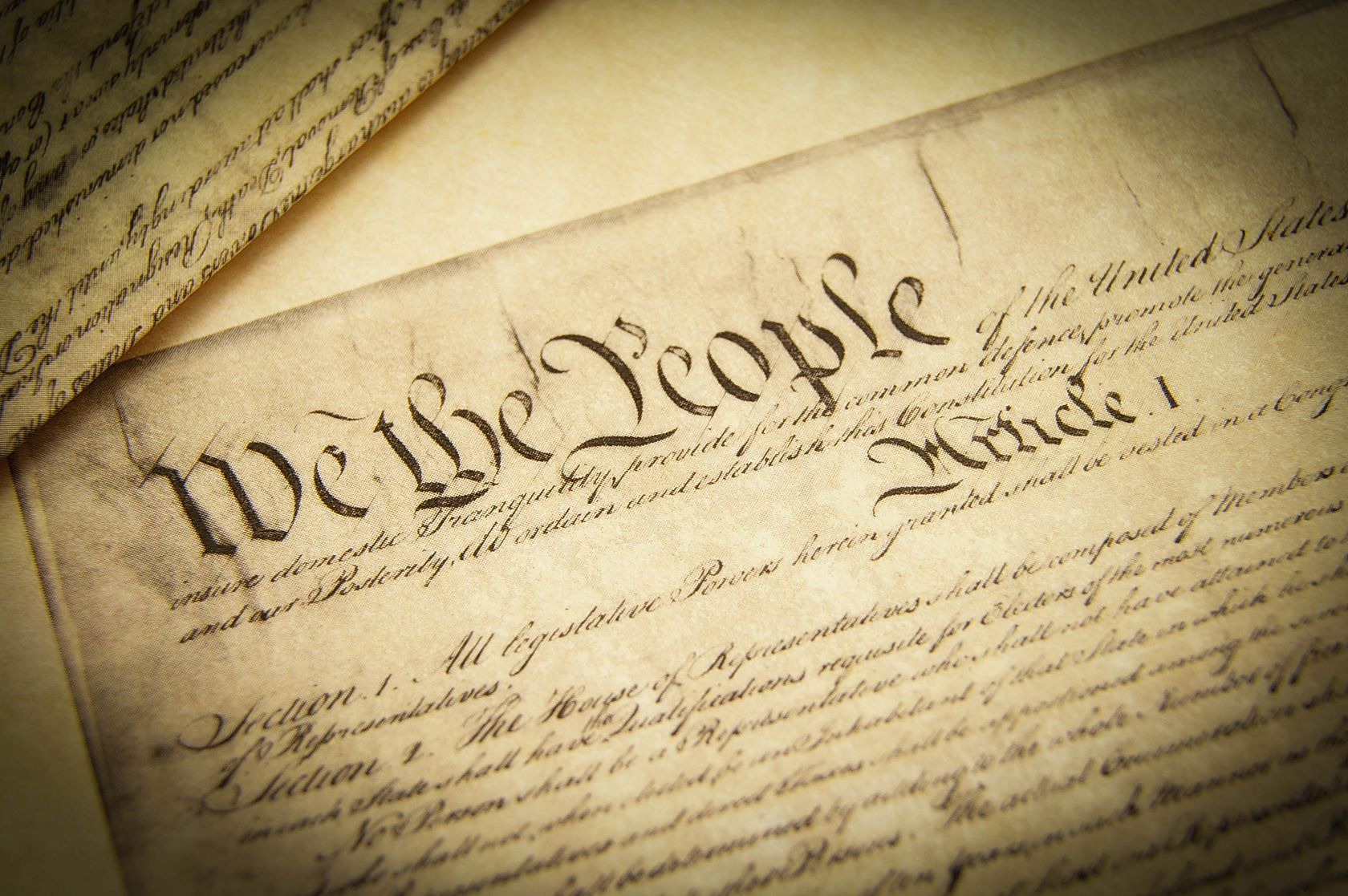Sept. 17 is Constitution Day—a time for governmentally sanctioned reverence for the U.S. Constitution. Typical of the paeans to the Constitution is this statement prepared by the American Bar Association: “In a democratic and diverse society such as ours, what must tie us together as Americans are our shared values. At the heart of these values, and of our system of government, is the United States Constitution.”
If the Constitution is the heart of our shared values, it is little wonder that our society is in such a mess. The explanations and assurances of the Federalists, the men advocating adoption of the Constitution, largely missed the mark. In contrast, most of the dire predictions by the Anti-Federalists, who opposed ratification of the Constitution as written, have come to pass. The result is our dysfunctional federal system.
For example, James Madison and Alexander Hamilton, when urging ratification in The Federalist Papers, assured the people that the federal government would exercise, in Madison’s words, “few and defined” powers directed mostly to foreign affairs and trade. They denied that the new government would have the power to infringe the reserved powers of the states.
The Anti-Federalists, however, were not calmed by these assurances. Elbridge Gerry of Massachusetts, who refused to sign the Constitution at the Philadelphia Convention, complained that “some of the powers of the [national] legislature are ambiguous, and others indefinite and dangerous.” He and other Anti-Federalists believed there would be ample opportunity for the federal government to claim greater authority than Madison promised.
Within the first decade or so under the Constitution, leaders in the government jettisoned the promise of limited-powers for the doctrine of implied powers. Congress started off slowly, but then moved into high gear. At first Congress incorporated a bank even though there was no enumerated chartering power. Later, Congress criminalized criticism of the federal government. There was no such enumerated power—the First Amendment specifically prohibited such a law. Power grabs by implication and ambiguity ruled the day.
Today we are hard pressed to name any area of life immune from federal interference. Farmers can be told how much wheat they may plant; individuals can be fined for not buying health insurance; and local school boards must follow federal guidelines—all without enumerated powers over agriculture, health care, and education.
The Federalists also promised, in the words of Madison, that government over a large territory would be “most favorable to the election of proper guardians of the public weal.” It would, he argued, “refine and enlarge the public views, by passing them through the medium of a chosen body of citizens, whose wisdom may best discern the true interest of their country.” In other words, national elections and national representatives would tend to promote the more intelligent and reflective leaders to office.
Anti-Federalists did not buy it. They supported a union among the states, but believed that absent exceptional circumstances power should be wielded by legislatures close to the people. In state and local assemblies, there would be men who mixed with the common people, who were aware of local circumstances, and who could quickly be held accountable if they strayed from the interests of the people. Self-government, for the Anti-Federalists, meant government on a human scale.
So has government on a grand scale produced whiz-kid congressmen who can best discern the interest of the country? The federal government has a national debt of over $19 trillion dollars. Opinion polls indicate that the debt is typically among the top three issues most troublesome to Americans. The best and brightest elected in this continental republic, however, are unable to balance the budget and pay down the debt. This is not some complicated question of astrophysics but instead is an issue with which millions of ordinary Americans grapple when they reduce expenses and work longer hours.
Rather than blindly celebrate the Constitution and the Federalists, Americans should use Constitution Day to acquaint themselves with the Anti-Federalists and their warnings about power and big government. The Anti-Federalists correctly identified the dangers in the Constitution. To them we should also turn for advice on the cure.












